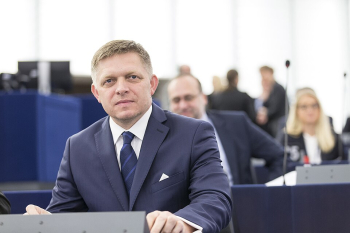
The European Commission announced today that over 100 companies have become the first signatories of the EU Artificial Intelligence (AI) Pact, committing to a set of voluntary
pledges aimed at promoting safe and ethical AI development. The signatories range from multinational corporations to European small and medium enterprises (SMEs) across various sectors, including IT, telecoms, healthcare, banking, automotive, and aeronautics. The Pact encourages companies to begin implementing the principles of the AI Act ahead of its official application and aims to foster collaboration between the EU AI Office and key stakeholders such as industry, civil society, and academia.
Core Commitments of the AI Pact
The EU AI Pact requires participating companies to commit to at least three key actions:
AI Governance Strategy: Develop a strategy that promotes the use of AI within the organization and ensures future compliance with the AI Act.
High-Risk AI Systems Mapping: Identify AI systems that could be classified as high-risk under the AI Act.
AI Literacy and Awareness: Promote AI literacy among staff and ensure the ethical and responsible development of AI.
In addition to these core commitments, over half of the signatories have taken on extra responsibilities, including ensuring human oversight of AI, mitigating associated risks, and clearly labeling AI-generated content, such as deepfakes. Companies can join the AI Pact and commit to these pledges at any time until the AI Act fully comes into force.
Advancing EU Leadership in AI Innovation
To further bolster AI innovation in Europe, the Commission is launching initiatives like the "AI Factories" on September 10, 2024. These will provide start-ups and industry with resources such as data, talent, and computing power to drive AI development. AI Factories will focus on developing and validating AI applications in key sectors like healthcare, energy, automotive, aerospace, defense, and agritech.
The AI Factories are part of a broader AI innovation package presented in January 2024, which includes venture capital support, the deployment of Common European Data Spaces, the "GenAI4EU" initiative, and the Large AI Grand Challenge. These initiatives aim to give start-ups access to financial backing and supercomputing power. The European AI Research Council will also be established to harness the full potential of AI, and the Apply AI Strategy will focus on boosting industrial uses of AI.
Background on the AI Act
The AI Act officially came into effect on August 1, 2024. While some provisions are already in place, the full implementation of the Act will take place over the next two years. Certain prohibitions will be enforced after six months, governance rules and obligations for general-purpose AI models will apply after 12 months, and rules for AI systems integrated into regulated products will take effect after 36 months. Photo by mikemacmarketing, Wikimedia commons.

















